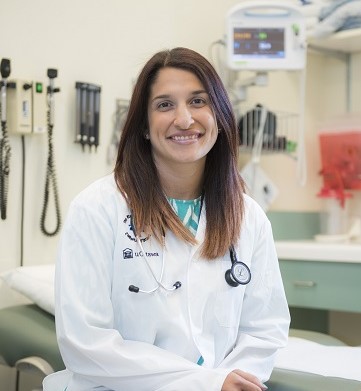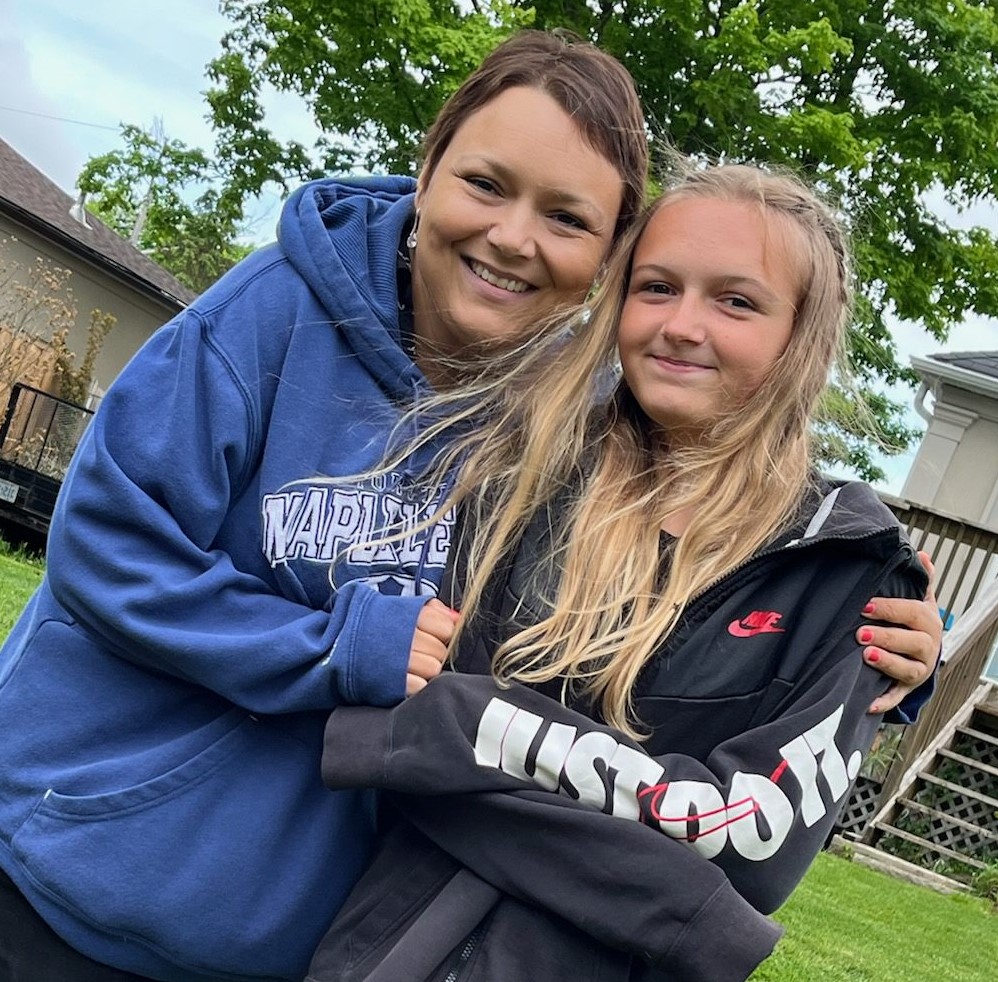 “We’re very excited about the preliminary results of this trial and we will be moving forward with new and exciting trials across Canada.” - Dr. Natasha KekreMore than a dozen people with cancer who had exhausted all treatment options are alive and cancer-free today thanks to a pioneering Canadian clinical trial of a highly personalized kind of immunotherapy. The results, presented at the 2022 Cell Therapy Transplant Canada Conference, could open the door to a new era of made-in-Canada immunotherapies for cancer.
“We’re very excited about the preliminary results of this trial and we will be moving forward with new and exciting trials across Canada.” - Dr. Natasha KekreMore than a dozen people with cancer who had exhausted all treatment options are alive and cancer-free today thanks to a pioneering Canadian clinical trial of a highly personalized kind of immunotherapy. The results, presented at the 2022 Cell Therapy Transplant Canada Conference, could open the door to a new era of made-in-Canada immunotherapies for cancer.
Patients in the trial had their immune cells (T cells) removed and genetically engineered in a lab to enhance their cancer-killing ability. The supercharged immune cells, called CAR-T cells, were then infused back into the same patient.
While Health Canada has approved several commercial CAR-T therapies, access is restricted to people with just a few kinds of leukemia and lymphoma, and only if they fall into certain age ranges. Commercial CAR-T therapy is also very expensive and involves shipping cells to the United States and back.
The new trial, called Canadian-Led Immunotherapies in Cancer-01 (CLIC-01), is the first to manufacture CAR-T therapy in Canada. It uses a different kind of cell manufacturing that opens the door to less expensive and more equitable treatment.
“Canadian patients deserve access to the best cancer treatments in the world, and we need Canadian research to make this happen,” said Dr. Natasha Kekre, a scientist and hematologist at The Ottawa Hospital, associate professor at the University of Ottawa and principal investigator of CLIC-01. “We’re very excited about the preliminary results of this trial and we will be moving forward with new and exciting trials across Canada.”
Encouraging results are paving the way for more clinical trials
 “I feel better than I’ve felt in a very long time. Being able to drive again and take my daughter to her softball games means the world to me. Even if the cancer comes back, this has given me precious time, and I know the research will help many others. It has given me a fighting chance.” -Camille Leahy, trial participant.CLIC-01 launched in 2019 at The Ottawa Hospital and BC Cancer for patients with specific kinds of leukemia or lymphoma who had exhausted all other therapies and were given just months to live. Thirty patients have been treated so far, and 13 have had complete responses, meaning no more cancer cells can be detected in their blood. Two have partial responses and five have disease that is progressing, while nine patients have passed away from their cancer.
“I feel better than I’ve felt in a very long time. Being able to drive again and take my daughter to her softball games means the world to me. Even if the cancer comes back, this has given me precious time, and I know the research will help many others. It has given me a fighting chance.” -Camille Leahy, trial participant.CLIC-01 launched in 2019 at The Ottawa Hospital and BC Cancer for patients with specific kinds of leukemia or lymphoma who had exhausted all other therapies and were given just months to live. Thirty patients have been treated so far, and 13 have had complete responses, meaning no more cancer cells can be detected in their blood. Two have partial responses and five have disease that is progressing, while nine patients have passed away from their cancer.
“Without this trial, I don’t think any of these patients would be alive today, so we are very encouraged by these results,” said Dr. Kekre. “So far, we are seeing an average progression-free survival of six months, which is very good in this patient population.”
CAR-T therapy is often associated with side effects such as cytokine release syndrome, and one patient on the CLIC trial passed away from this condition. Overall side effects among trial participants were lower than expected.
Canadian-Led Immunotherapies in Cancer (CLIC) program is expanding across the country
CLIC’s CAR-T therapy is manufactured jointly by The Ottawa Hospital’s Biotherapeutics Manufacturing Centre and BC Cancer’s Conconi Family Immunotherapy Lab. The trial was initially supported by BioCanRx, BC Cancer, BC Cancer Foundation, The Ottawa Hospital Foundation and the Ontario Institute for Cancer Research, with more recent contributions from the Ottawa Regional Cancer Foundation and the Leukemia and Lymphoma Society of Canada. The team is now working with partners in Toronto, Winnipeg and other cities to expand CAR-T infrastructure and enable more patients to have access to innovative CLIC trials.
“We are delighted to work with partners across Canada to build Canadian expertise, capacity for innovation, and clinical trials in this field,” said Dr. Kevin Hay, a scientist and hematologist at BC Cancer, and co-lead investigator for CLIC-01. “We hope our research will enhance cell-based immunotherapies that can be made in Canada, as well as innovative approaches for providing these therapies throughout Canada.”
Young mother gets ‘a fighting chance’
For Camille Leahy, a 37-year-old single mother from Newmarket Ontario, CLIC-01 came just at the right time.
Camille was diagnosed with acute leukemia in January 2020. Despite many rounds of aggressive chemotherapy and a stem cell transplant, the cancer kept coming back and by March of 2021, she was out of options.
Fortunately, Camille’s cousin, who works at The Ottawa Hospital, had heard about the CLIC trial and suggested that Camille look into it. Camille was treated on September 15, 2021 and is now cancer-free.
“I feel better than I’ve felt in a very long time,” said Camille. “Being able to drive again and take my daughter to her softball games means the world to me. Even if the cancer comes back, this has given me precious time, and I know the research will help many others. It has given me a fighting chance.”
Patients who are interested in participating in clinical trials should speak with their cancer specialist.
See the abstract presented at the 2022 Cell Therapy Transplant Canada Conference for details.
About the Canadian-Led Immunotherapies in Cancer (CLIC) research program
The CLIC research program, established in 2016, brings researchers, clinicians and patients from across Canada together to build Canadian expertise and capacity for innovation in the promising field of cellular immunotherapy for cancer, including CAR-T therapy. The first CLIC clinical trial launched in 2019 at The Ottawa Hospital and at BC Cancer, with support from BioCanRx, BC Cancer, BC Cancer Foundation, The Ottawa Hospital Foundation, the Ontario Institute for Cancer Research, the Ottawa Regional Cancer Foundation and the Leukemia and Lymphoma Society of Canada. Core facilities and resources supporting CLIC include The Ottawa Hospital’s Biotherapeutics Manufacturing Centre, BC Cancer’s Conconi Family Immunotherapy Lab, the Ottawa Methods Centre and the Blueprint Translational Research Group. CLIC team investigators include Drs. Natasha Kekre, Harold Atkins, John Bell, Kevin Hay, Rob Holt, Brad Nelson, John Webb, Julie Nielsen, Manoj Lalu, Kednapa Thavorn, Dean Fergusson, Justin Presseau and Jen Quizi.
Media contact
Jenn Ganton, 613-614-5253, jganton@ohri.ca
